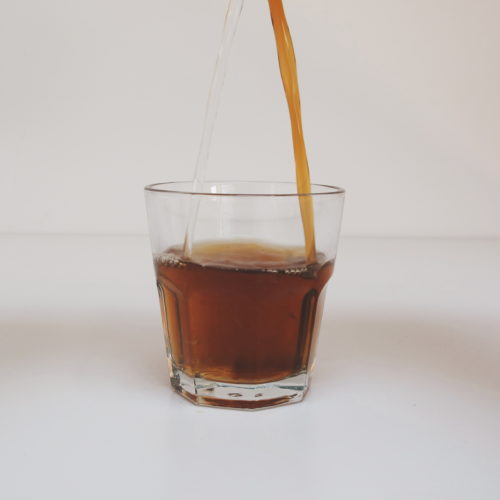It's been a month full of events and thoughts. And we're not even talking about the upcoming World Barista Championship, as everyone is waiting to see what will happen there in Amsterdam, who will make the final, and who will ultimately emerge as the champion.
True, right?
I had a "geeky" article
About water and coffee, ready to be published, but I'll put it on hold for a moment. However, I'll talk about water and coffee from another perspective.
I constantly feel like specialty coffee is becoming too "geeky." In a sense that "geeky" is different from being professional. So "geeky" that we're in danger of forgetting that coffee is like any other beverage or product. Like beer, wine, tea, whiskey, cheese, bread...
Coffee is as complex as any of these products. It is one of them. And while it feels good when you know what you're drinking or eating, and can distinguish the details and quality, it's not absolutely necessary for a good experience. It elevates your experience, yes, but only under one condition. When you are curious to know more about the product. Only in this case. In all other cases, knowing more about the product only irritates him.
How can you simply enjoy a good bourbonYou can enjoy a cup of coffee and then go on with your life, without going into the details of how it was fermented, harvested, grown, and knowing the names of all the workers who touched the cherries. It's not necessary.
I'm getting a little tired of the geeky stuff that leads nowhere.
I'll give you an example.

Geeks know that the water you use to make your coffee is very important. They know it needs to have certain levels of certain minerals to extract the coffee properly.
But what are they doing with that information?
They want everyone who makes coffee, no matter how professional, to use water with certain specifications. Because coffee must be roasted to the ideal water. If people don't have it, they have to buy filters, buy bottled water, look at the stickers, add minerals, etc. Do whatever they want, because water is important and everyone has to use good water to make good coffee. Period.
What this basically means is that they want a grandmother who buys coffee for her family Sunday lunch to be a geek over water. Or a super busy guy who needs coffee for fuel in the morning to do his v60 only with a certain type of water. Or a mother of three. I could go on, but you get the idea.
The truth is, not everyone wants to do it. Most people just want to drink coffee and get on with their lives. The roaster's job is to roast coffee for the most common water used, or for the recommended water that the customer can easily purchase. Not for a certain "ideal" water, which is unattainable for ordinary people and requires mineral stocks and additional investments, such as purchasing filters, etc.
That's why big brands thrive. Because they make it simple for the customer. And they're rewarded for it.
Information about water is valuable. It can give you, as a geek, almost superpowers.
Now that you're no longer blaming the roaster, you can take things a step further: "What if this coffee tastes flat because it was roasted for a different type of water?"
Do you see the difference?
Not "This coffee is poorly roasted" or "This coffee tastes bad because it doesn't work with my ideal water." But the question "What type of water was this coffee roasted for?"
Don't force the world to revolve around you, but use knowledge to your advantage.
Today I made a new coffee from a roaster I tried for the first time, with two waters. I made the first V60 with filtered and remineralized water, and it tasted sour and flat. Then I thought, "Okay, the guy's from here, so it's probably his idea to roast for tap water." I made a coffee with tap water, and it had a balanced, sweet flavor.
I think this is what being a coffee geek is all about. It's really about using knowledge and not pressuring the whole world to change because "they're wrong, they need to be educated about coffee."
I'm really in favor of that kind of thinking, that kind of growth as a professional. You need your knowledge to be able to follow the rules. And when you know how to follow the rules, you can think further and learn how to start breaking the rules and get even better results.
But keep in mind that not everyone who drinks coffee wants to be "polite."
If you're a coffee professional, having education and training in the field, especially during your early years, is crucial. For you. To serve better.
But being a coffee drinker in general is a different story. Just like you're not asked for a license when you're about to enjoy your whiskey, beer, or tea. You just do it. And it's the job of cheese/beer/whiskey makers (and coffee makers among them) to make it accessible and easy for you to enjoy their product.